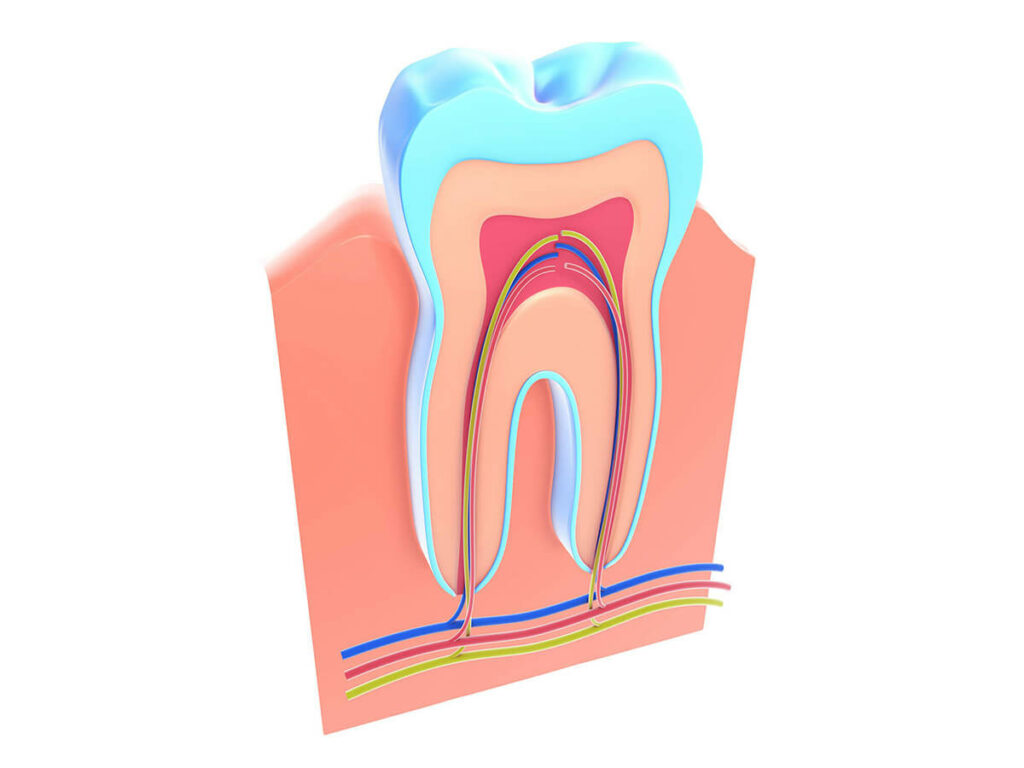Root Canal Treatment
Root canal treatment can save an infected tooth from otherwise certain extraction—it’s a proven procedure that will leave your mouth healthy and strong while restoring its natural appearance.
Quit Suffering So You Can Smile Again
Lingering tooth sensitivity after eating or drinking something hot or cold? Sharp pain when biting or chewing? A toothache is almost always a sign that infection has damaged the pulp within your tooth root. This can be the result of a severe tooth crack or fracture, injury to a tooth, or extensive tooth decay that has reached the inside of the tooth. Without treatment, the infection will continue to cause tooth pain, can lead to a tooth abscess, and in the worst cases will require the tooth to be extracted altogether. If you’re experiencing any noticeable symptoms, especially severe toothache, we have a solution!
Our dentists at Dental Care East Hanover are trained and experienced in providing endodontic treatment including root canals in East Hanover, NJ. Root canals treat and remove the dangerous infection and inflammation inside your tooth before it can spread. Don’t let the stigma surrounding this procedure cause you apprehension or lead you to put off your treatment. When we offer root canals in East Hanover, NJ, they’re designed to comfortably eliminate your tooth pain (not cause more) and ultimately save your natural tooth!

-
What is a root canal?
A root canal is a procedure used to save a tooth when the nerves inside become inflamed. The dentist must remove the infected tissue in order to save the tooth and remove the pain. Once that is done, the infected area is cleaned out.
Root Canal Symptoms
A patient suffering from an infected root canal will almost certainly recognize that there is something wrong. They will usually be in severe pain and will notice the following symptoms:
- Severe and intense toothaches that won’t go away
- Sensitivity to hot and cold foods and drinks
- Swollen and tender lymph nodes
- Recurring abscesses on the gums
Generally, but not always, a crown will need to be placed after the root canal treatment is complete in order to protect the tooth from any further damage.
-
How is root canal treatment performed?
Root canal treatment starts with digital X-rays to determine the extent of the damage. The dentist will carefully access the tooth’s inner structure and carefully clean out the infectious material to leave the tooth as a hollowed-out structure. Then they flush the area with an antimicrobial liquid. The tooth is then treated with a medicated filling substance to offer support and strength to help the tooth heal in a timely manner. To protect the tooth, a dental crown is placed over the structure to prevent fractures and breakages.
-
How long does the pain from a root canal last?
There is a common misconception that root canals are very painful. The truth is, the root canal procedure itself isn’t usually any more painful than a tooth filling. Dentists typically provide an anesthetic before the procedure so during and a short while after there isn’t a huge amount of discomfort.
Some sensitivity and discomfort are common while the area around the root canal heals. Gums can become swollen or agitated during the procedure, which results in mild pain. This pain should subside when the tooth is healed. After your treatment, your dentist will provide you with special instructions on how to care for your newly treated tooth.
More Questions?
If you have more questions about root canal treatment, please contact our office and we will be happy to discuss further. Feel free to schedule an appointment online through the button below.

